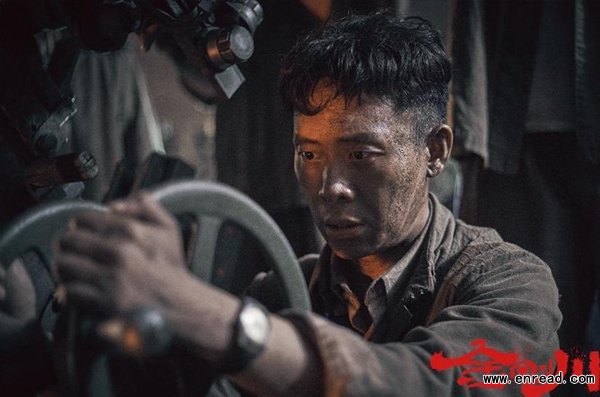| |||||
|
To mark the 70th anniversary of the Chinese People's Volunteers forces entering the Democratic People's Republic of Korea to fight in the War to Resist US Aggression and Aid Korea (1950-53), the epic film The Sacrifice opened on Oct 23, quickly topping the country's box office charts during the first weekend.
为纪念抗美援朝出国作战70周年,电影《金刚川》于10月23日上映,迅速成为本周末的全国票房冠军。

Bringing together three A-list directors - Guan Hu, Guo Fan and Lu Yang - the film is adapted from true stories but added fictional content. The cinematic story is set on July 12, 1953, the second day after the outbreak of the Battle of Kumsong.
According to the Ministry of National Defense, the Battle of Kumsong - which lasted 15 days - was the last fight of the war. Chinese People's Volunteers army killed, wounded and captured more than 52,000 enemy troops, accelerating the signing of the armistice.
I watched the film during the Beijing premiere on Thursday night, hardly able to hold back my tears for the fearless Chinese soldiers, who bravely fought until the last moment, despite the fact their weapons were much lower quality than those of the US forces.
Unlike most previous domestic war-themed films that chronicle milestone incidents or highlight historic figures, the feature is quite unlikely to turn the lens to ordinary soldiers who sacrificed their lives to defend a bridge.
Stretching across the torrent Kumgang River with its widest part reaching around 60 meters and as deep as four meters, the bridge was the only portal to transport thousands of Chinese soldiers and military vehicles to the battlefield of Kumsong.
In the film that unfolds with three different perspectives, you will see the air was dominated by American fighters due to Chinese troops' severe shortage of weapons, resulting in many deaths among Chinese soldiers.
Zhang Yi has garnered the most praise thanks to his textbook portrayal of Zhang Fei, an anti-aircraft gunner, convincingly showcasing his transformation from being a somewhat cowardly, hesitant figure to a fearless hero who wants revenge for his close comrade and creates a chance for the major forces to get across the bridge.
In the last scene, the character climbs back to an anti-craft gun despite one of his arms and legs being blown up during a bombing attack, using his last strength to fire at a diving US fighter plane.
Just at that moment, you may find your body clenched up and your stomach in knots, realizing the line in China's national anthem that says "using our flesh and blood to build the Great Wall" has literal implications.
|
|||||
上一篇:《致命女人》中那些经典口语素材 下一篇:BBC:11月值得一看的5部电影 |
- 发表评论
-
- 最新评论 进入详细评论页>>



